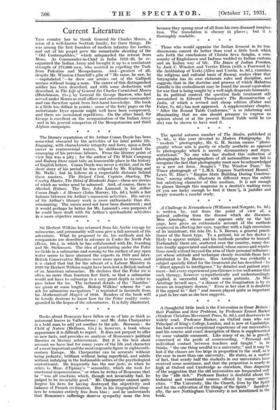Books about Rousseau have fallen on us of late as
thick as autumnal leaves in Vallombrosa ; and Mr. John Charpentier is a bold man to add yet another to the pile. Rousseau : the Child of Nature (Methuen, 15s.) is, however, a book whose appearance it is difficult to regret. It does not purport to offer us new facts, and provides no analysis of Rousseau's political theories or literary achievement. But it is the best short account we have had for many years of the life and character of a most important and the most enigmatic figure in eighteenth- century Europe. Mr. Charpentier can be accurate without being pedantic, brilliant without being superficial, and subtle without indulging in the fashionable antics of the psychological contortionist. He frequently has the mot juste, as when he refers to Mme. d'Epinay's " sensuality, which she took for emotional responsiveness," or when he writes of Rousseau that he " was all emotions which, though not invariably bad, he judged to be invariably good." Mr. Charpentier cannot quite forgive his hero for having destroyed the objectivity and balance of French civilization. But in his biographical chap- ters he remains entirely free from bias ; and he understands that Rousseau's sufferings deserve sympathy none the less because they sprang most of all from his own diseased imagina- tion. The translation is clumsy in places ; but it is thoroughly readable.
* * * *






































 Previous page
Previous page